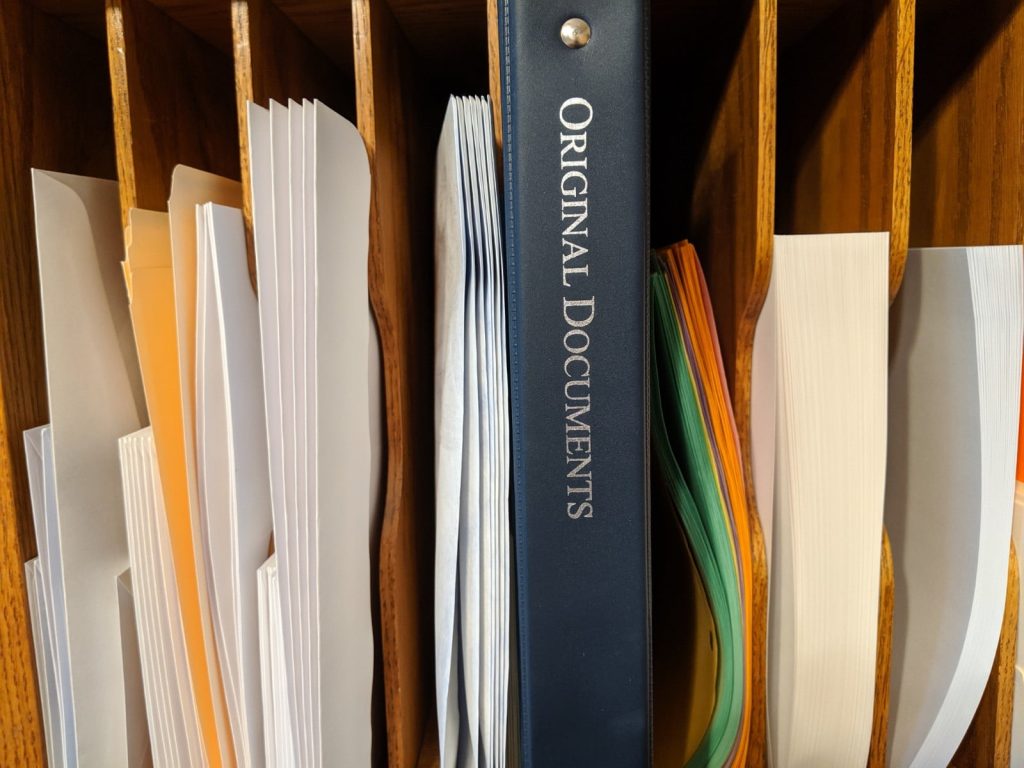

You’ve signed your will and powers of attorney. Maybe you’ve even signed a living trust. But now who should get copies of your will and trust? Is the answer different for your powers of attorney?
First, let’s just say a word about what you should do with the original documents. We’ve written about this before, and at greater length. Actually, we wrote about what NOT to do with the documents. We were responding to a friend and colleague’s post on the subject, which we still think was quite good.
Should the original documents remain with us, or go home with you? We have long favored the latter; other lawyers regularly retain original documents, but we usually do not. But we do realize that the originals are more likely to get lost or misplaced at your house than in our office. That means you have to keep track of the documents.
Should you put them in a bank safety deposit box? We’re not big fans of that idea. The documents are not intrinsically valuable — that is, a thief is not likely to steal them from your home. In the meantime, the documents will be needed in what is likely to be an unpredicted emergency. They should be where people can find them.
Do you have a secure place for documents in your home? Maybe you have your car title, or insurance documents, or other important papers in a fire-resistant cabinet or safe. Put your will and trust there. Don’t have any such place? We usually joke about the top left desk drawer in your study — that’s where everyone will look first for documents. The second place they’ll look: on your bookshelf.
Meanwhile, should you make a copy of your estate planning documents and give them to all your kids? How about the people you named as agent, personal representative, or successor trustee?
The answer is not really a legal one. It has more to do with your family dynamics, living situation and trust level.
Our favorite approach: give copies to everyone who will be affected. That would usually include your children, the agents named in your powers of attorney, your successor trustee — pretty much everyone. But that is not required, and it can sometimes have unexpected effects.
We have had clients share documents fully with their family, only to be confronted by angry children who expected to receive a larger share of the estate. We have had clients keep the estate distribution private, and left unanswered questions on their demise. Why did dad choose my sister to handle things? Why does my brother get a larger share than anyone else? My share goes to a trust, but my brother’s and sister’s are not — why is that?
There is no reliably correct approach. You might consider having a family meeting, handing out copies and fielding questions. If you’d like, we can arrange to have a family meeting in our offices (assuming we are your lawyers, of course).
The primary reason to share copies of your will and trust: to give your family a chance to confirm that you really intended what you wrote. But there’s an important secondary reason, too: you should let people know what responsibilities they will have.
Even if you are uncomfortable sharing your will and/or trust with your family, we think you should hand out copies of your powers of attorney. Why? Because those documents identify the person who will have to act, possibly on very short notice, if you are injured or sick.
We also think you should make clear to family members who have NOT been named as your agent. They might reasonably assume that they need to take action, and they might step on your actual agent’s authority. Besides, you don’t want your family squabbling about who should be in charge at the time of an emergency. Better to clear up any confusion well in advance.
It’s also important to let the backup or alternate agent(s) know they are in the list. If your first chosen agent is not available, there may not be time to hunt down the documents and figure out who will need to make decisions.
There’s another reason to share information. Suppose that one of your children would rather have any inheritance go to their children. Should it be outright, or in trust? How would their surviving spouse be treated? They don’t get to dictate what you do, of course, but they might have legitimate preferences that you would like to honor. These topics don’t tend to come up over Thanksgiving dinner on their own. You — and they — may need an opportunity to engage in the discussion. Handing out copies might give that opportunity.
It’s also critically important that at least some of your family knows where to find the original documents. Planning on keeping them in that top left desk drawer? Great — but maybe put a copy in your safety deposit box with a note saying “look in the top left desk drawer” just in case someone gets to the bank before looking in your study. When you hand out copies, tell the recipients where to find the originals.
Our most important advice, though: don’t let these questions slow you down. You need to actually complete your estate planning — and then you can address what to do with copies of your will and trust.